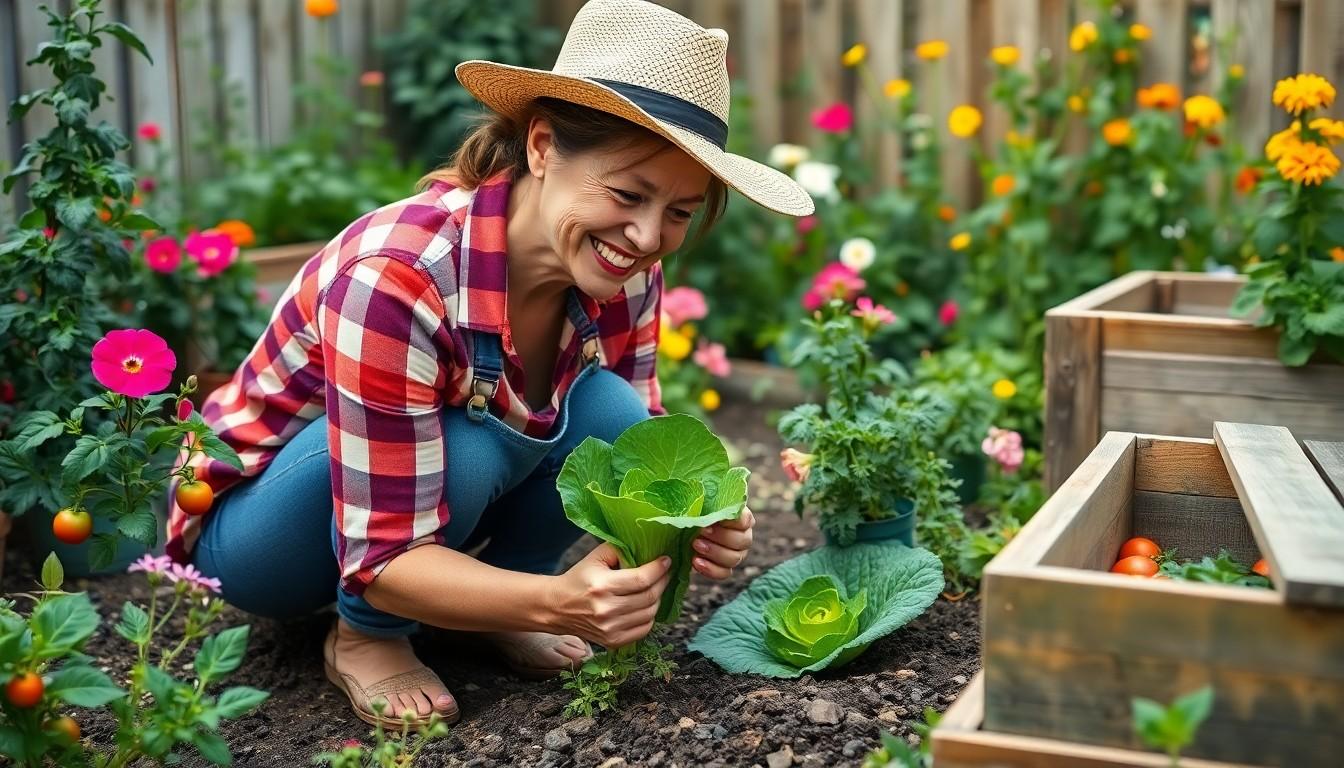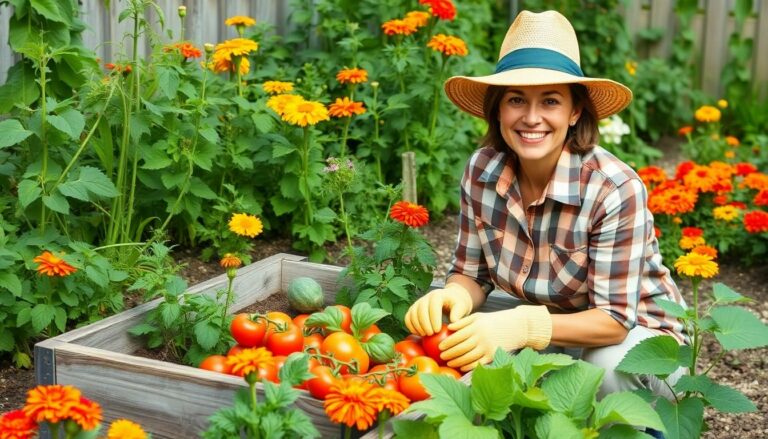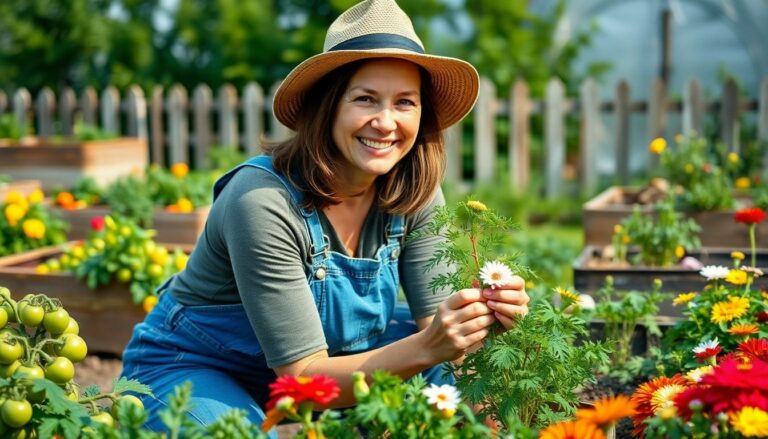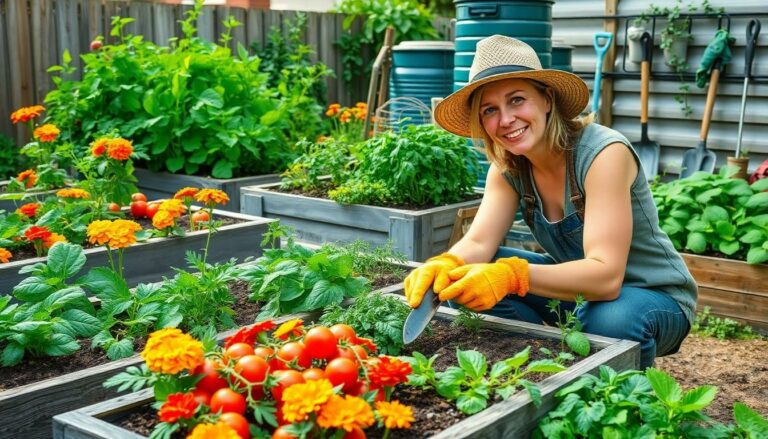Imagine stepping into your backyard and plucking ripe tomatoes, crisp lettuce, and fragrant herbs—all without a trip to the grocery store. Homestead gardening isn’t just a trend; it’s a delightful way to reconnect with nature while enjoying fresh produce. For beginners, it might seem daunting, but fear not! With a little guidance and a sprinkle of enthusiasm, anyone can transform their patch of earth into a thriving garden.
Starting a homestead garden is like embarking on an adventure where the only tools you need are a trowel, some seeds, and a sense of humor. Whether you’re battling the local squirrels or figuring out how to keep your plants alive, the journey is filled with laughter and learning. Dive into the world of homestead gardening and discover how to cultivate not just plants but also a sense of accomplishment and joy.
Homestead Gardening for Beginners
Homestead gardening focuses on self-sufficiency, allowing individuals to grow their own food. Beginners often view this as an excellent way to enjoy organic produce. Growing fruits, vegetables, and herbs in a home garden reduces reliance on grocery stores. Gardening provides access to fresh ingredients and promotes better health through nutritious food.
Space may limit some beginners, yet container gardening offers a viable solution. Additionally, vertical gardening techniques maximize small areas, making productive use of limited space. Establishing a garden also fosters environmental awareness, encouraging sustainable practices that benefit the planet.
Learning about soil health is crucial in homestead gardening. Healthy soil enhances the growth of plants, resulting in better yields. Composting organic matter enriches the soil while reducing waste. Many beginner gardeners start with easily manageable crops, such as tomatoes, lettuce, and radishes.
Pest management becomes easier with knowledge of companion planting. Some plants can deter pests naturally. For example, marigolds repel aphids while attracting beneficial insects. Understanding these relationships supports a thriving garden ecosystem.
A commitment to regular maintenance improves overall success. Watering, weeding, and monitoring plant health become essential tasks in building a flourishing garden. Each task contributes to a stronger connection between the gardener and their plants.
Joining community gardening groups can enhance the learning experience. Beginners benefit from shared knowledge and support from experienced gardeners. Engaging with others provides inspiration and motivation to continue growing.
Benefits of Homestead Gardening
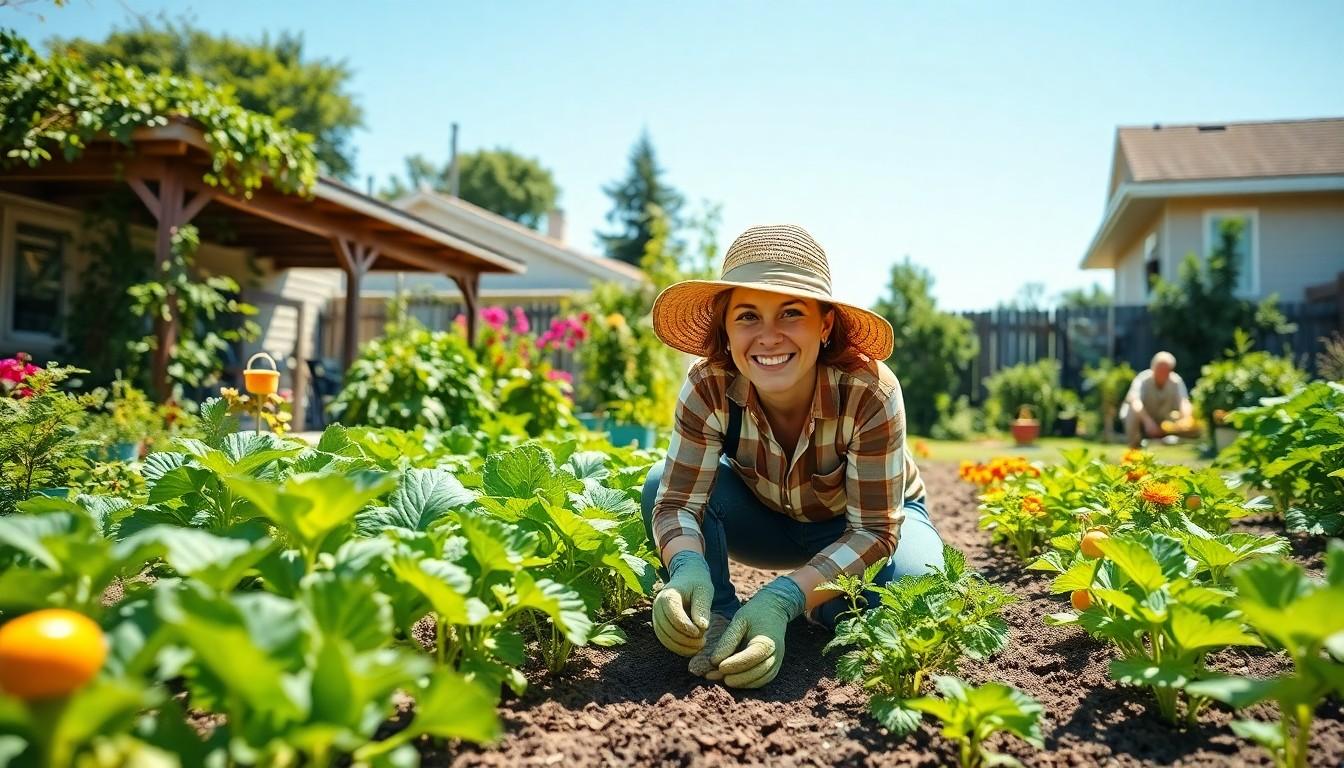
Homestead gardening offers numerous advantages for individuals eager to cultivate their own food. It supports environmental sustainability and promotes healthier lifestyles.
Environmental Impact
Homestead gardening enhances local ecosystems. It fosters biodiversity by creating habitats for beneficial insects and wildlife. Organic practices contribute to healthier soil and water systems, reducing chemical runoff. Composting organic waste decreases landfill contributions and enriches garden soil. Water conservation methods, such as rainwater harvesting, further promote ecological balance. Engaging in homestead gardening also helps lower carbon footprints by minimizing food transportation distances.
Health and Nutrition
Homestead gardening improves access to fresh, nutrient-rich foods. Homegrown vegetables and fruits often contain higher vitamin levels compared to store-bought options. Gardening encourages individuals to consume a wider variety of produce, increasing overall dietary diversity. Controlled growing conditions allow for organic practices, reducing pesticide exposure. Furthermore, physical activity involved in gardening boosts fitness and well-being. Connecting with nature also promotes mental health by reducing stress levels.
Getting Started with Homestead Gardening
Embarking on a homestead gardening journey requires careful planning and preparation. Beginning gardeners must consider key factors to ensure a thriving garden.
Choosing the Right Location
A suitable location for gardening plays a crucial role in a successful garden. Sunlight exposure should be a priority, so selecting a spot that receives at least six to eight hours of direct sunlight daily is essential. Consider accessibility; placing the garden near the home simplifies maintenance tasks. Drainage is another factor; avoid low-lying areas prone to water pooling. Lastly, proximity to a water source will make irrigation much easier.
Essential Tools and Supplies
Getting started demands a few essential tools and supplies. A spade and a trowel aid in soil preparation and planting. Pruning shears assist in maintaining healthy plants. Watering cans or hoses ensure adequate hydration for crops, while gardeners should also consider mulch for moisture retention and weed control. Additionally, using quality seeds or seedlings sets the foundation for a bountiful harvest. Finally, a compost bin supports sustainable practices, recycling kitchen scraps into valuable nutrients for the soil.
Planning Your Garden Layout
Planning the layout of a homestead garden benefits both efficiency and productivity. Thoughtful organization fosters a thriving environment for plants to flourish.
Companion Planting
Companion planting involves pairing compatible plants to enhance growth and deter pests. Basil and tomatoes are a classic example, as basil improves the flavor of tomatoes while repelling harmful insects. Marigolds serve as another useful companion, attracting beneficial insects such as ladybugs. Each pairing offers mutual benefits, creating a natural pest management solution. Utilizing companion planting maximizes space and promotes a healthy ecosystem within the garden.
Crop Rotation
Crop rotation plays a vital role in maintaining soil health and reducing pest buildup. Changing the locations of specific crops each season prevents nutrient depletion and lowers the risks of diseases. For instance, rotating legumes with leafy greens enriches the soil, as legumes fix nitrogen. This practice encourages overall biodiversity, as varied crop types support different microorganisms in the soil. Implementing crop rotation practices strengthens the garden and sustains productivity year after year.
Common Challenges and Solutions
Beginners often face challenges in homestead gardening, yet practical solutions exist. Pest infestations can threaten plants, but employing companion planting significantly reduces this risk. For example, planting marigolds alongside vegetables discourages harmful insects naturally.
Another common issue is soil health. Amending the soil with organic compost improves nutrient content, enhancing plant growth. Testing soil pH can identify deficiencies and allow for targeted improvements.
Water management also presents difficulties, particularly in areas with inconsistent rainfall. Utilizing rain barrels for collection helps conserve water and ensures plants receive adequate moisture. Effective mulching retains soil moisture and suppresses weeds, making upkeep easier.
Weed growth competes with garden plants for resources and can lead to frustrating maintenance. Implementing a regular weeding schedule helps control this issue. Beyond that, a well-planned layout allows for easier access to plants, simplifying maintenance tasks.
Limited garden space complicates growing a diverse range of crops. Container gardening offers a practical alternative, enabling gardeners to utilize vertical space efficiently. Choosing varieties suited to smaller spaces, such as dwarf plants, maximizes productivity.
Time management emerges as a hurdle for busy individuals. Establishing a routine for garden care creates consistency, making it easier to maintain plants. Incorporating quick-growing crops like radishes or lettuce allows for quicker harvests.
Fostering a connection with fellow gardeners provides support when challenges arise. Joining local gardening clubs or online forums creates a network for sharing experiences and solutions. Such interactions inspire growth and persistence in the gardening journey.
Supports A Healthier Planet
Homestead gardening opens up a world of possibilities for anyone looking to cultivate their own food and connect with nature. It’s a journey filled with learning and growth that fosters self-sufficiency and sustainability. By starting small and gradually expanding one’s gardening skills, beginners can enjoy the satisfaction of harvesting fresh produce while enhancing their physical and mental well-being.
The rewards of homestead gardening extend beyond personal benefits. It contributes positively to the environment and local ecosystems. Embracing this practice not only enriches individual lives but also supports a healthier planet. With the right mindset and resources, anyone can embark on this fulfilling adventure and experience the joys of nurturing a garden.

